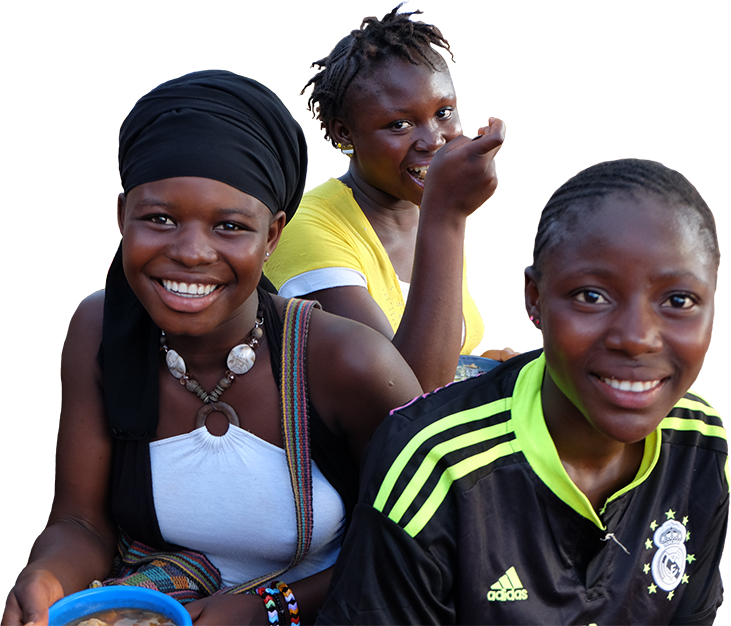Adolescents are uniquely positioned to contribute to the design and delivery of effective programs and services. Policymakers, program managers, and service providers need to include adolescents as much as possible when designing, planning, implementing, delivering, and monitoring youth-responsive nutrition programs and services. If you have examples of policies, programs, services, guidance, evidence, and tools related to the engagement of adolescents in the design, implementation, delivery or evaluation of nutrition programs and services, please send them to info@advancingnutrition.org.
We found 57 resource(s)
Adolescent Girls' Nutritional Status and Knowledge, Beliefs, Practices, and Access to Services: An Assessment to Guide Intervention Design in Nepal
Journal Article published by Current Developments in Nutrition in
This study was conducted to support the design of an evidence-based adolescent nutrition program in Nepal (Suaahara.) The study found that exposure, knowledge, and behaviors across thematic areas differed by stage of adolescence. It concluded that heterogeneity among adolescent girls should be considered when selecting interventions that have the…
Lives in the Balance: A COVID-19 Summit for the Health and Well-being of Women, Children and Adolescents
Video/Animation published by CORE Group, PMNCH in
Lives in the Balance was a virtual summit convened to discuss the health and well-being of women, children, and adolescents during the COVID-10 pandemic. Video recordings of the plenary, breakout, and "marketplace" (brief presentations highlighting programs) sessions are available.
Food and Me: How Adolescents Experience Nutrition across the World
Technical Report published by UNICEF, Western Sydney University in
This report synthesizes findings from workshops with 600+ adolescents in 18 countries, in which the participants talked about their diets, nutritional knowledge, body image, and barriers and facilitators of healthy eating. This resource contains many quotes from adolescents regarding their perceptions of healthy and unhealthy foods and dietary…
Qualitative Evaluation of a Social Media Campaign to Improve Healthy Food Habits among Urban Adolescent Females in Indonesia
Journal Article published by Academic Journal in
This paper outlines the results of a qualitative evaluation of a social media campaign to promote healthy eating among urban adolescent girls (15-19) in Indonesia. The social media campagin was considered acceptable by the adolescents. They reported finding it informative in terms of health risks of unhealthy diets and motivational to change their…
Adolescent Nutrition Training App (UNICEF Bangladesh)
eLearning published by UNICEF in
This "Adolescent Nutrition Training" app (available on Google Play), developed by Riseup Labs, with assistance from UNICEF Bangladesh and the Ministry of Health of Bangladesh, provides a free online nutrition course in Bengali. Users will learn about the importance of adolescent nutrition, the situation in Bangladesh with regard to…
Fooya! Fit. Food. Fun. Mobile Gaming App
eLearning published by FriendsLearn in
This resource contains 1) an academic article reporting the effectiveness of the Fooya! app for increasing healthy food choices in a study of 10-11 year old children in Chennai, India; 2) a brief communication describing the results of the study; and 3) a link to download the Fooya! game app. Fooya! uses implicit learning strategies to encourage…
‘I should be disease free, healthy and be happy in whatever I do’: a cross-country analysis of drivers of adolescent diet and physical activity in different low- and middle-income contexts
Journal Article published by Academic Journal in
This article analyzed qualitative data from 5 countries (8 sites), in which focus groups were conducted with adolescents and caregivers. Major themes included: (1) transitions in generational nutrition education and knowledge; (2) transition in caregiver–adolescent power balance and (3) the implications of societal and economic transition for diet…
Lafaek for Adolescent Nutrition
Journal Article published by WFP in
This special edition of the Lafaek Magazine targets adolescents—to increase their knowledge about nutrition and promote key nutrition practices under their control. Key practices include eating breakfast, choosing healthy snacks, and choosing water as a healthy drink.



